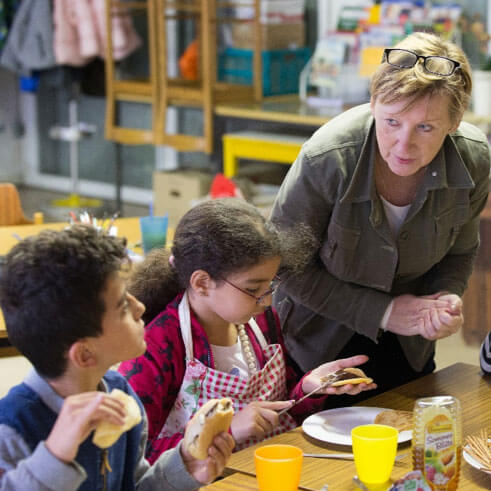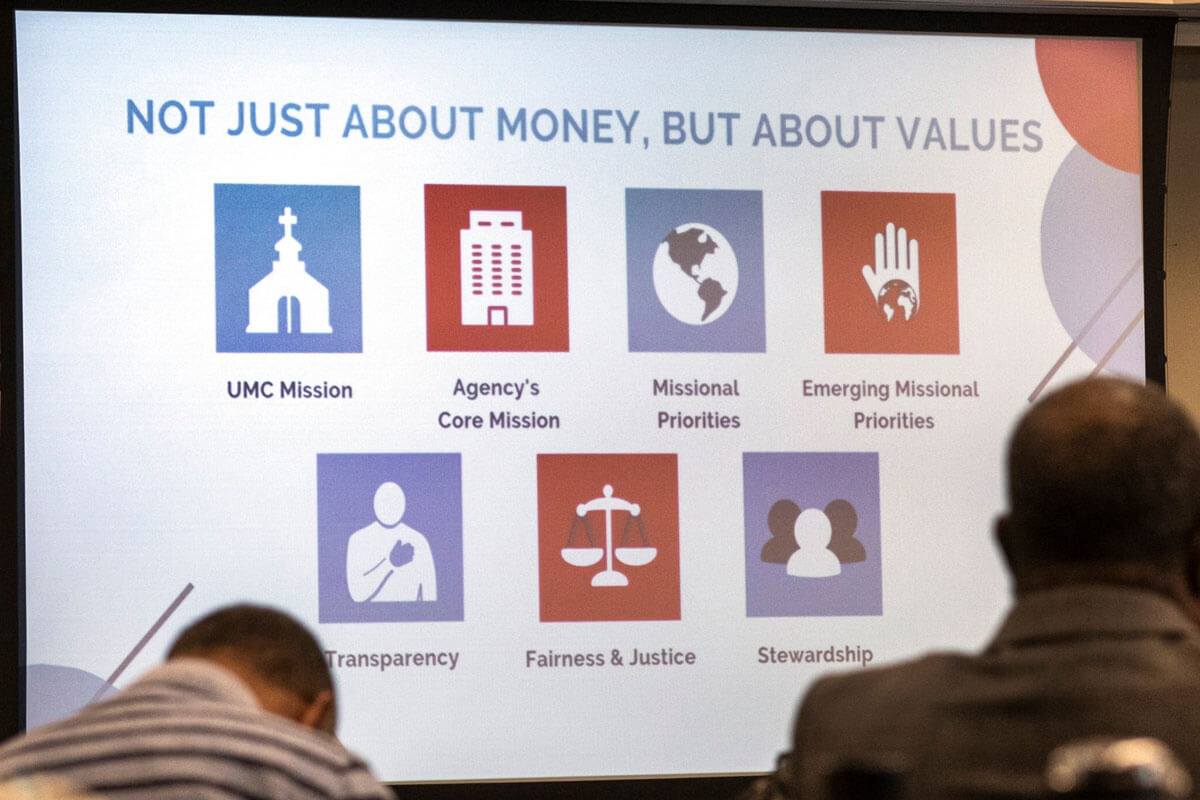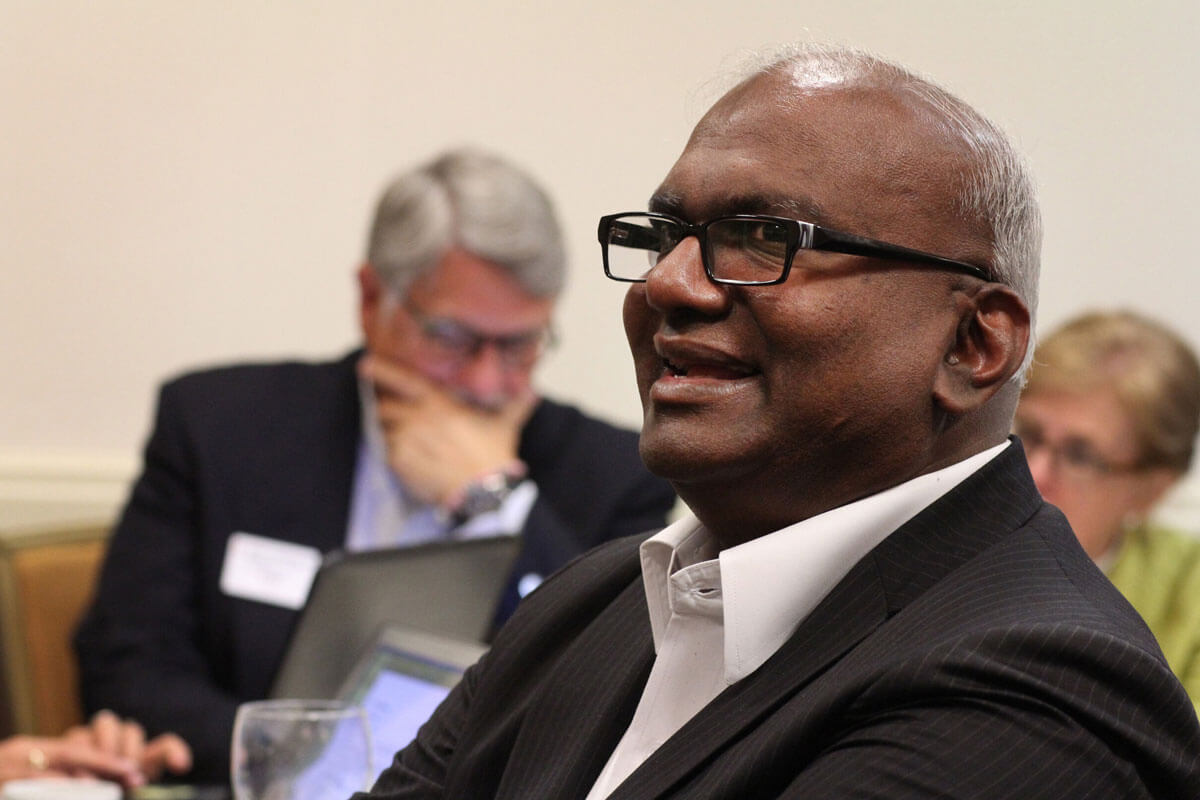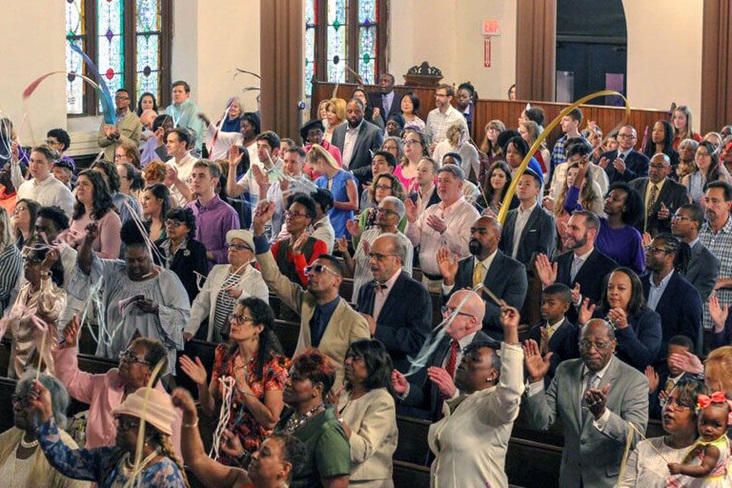Promoting Missional Vitality and Effectiveness
“The mission of the Church is to make disciples of Jesus Christ for the transformation of the world.” Book of Discipline, ¶120

Missional Strategy
To refine and hone our mission across agencies and connectional structures in the next quadrennium, the Connectional Table is collaborating with the Council of Bishops, United Methodist foundations, agencies and other partners on a new Missional Strategy Team. This team is directed by the Council of Bishops and will develop processes for determining new missional direction and strategy, focusing on innovation, and fostering adaptive experiments that could shape new direction for our denomination.
Vital Congregations through the Four Areas of Focus
In 2008, the Council of Bishops and Connectional Table introduced the Four Areas of Focus to General Conference in an effort to present a vision of ministry and mission that would name and claim the best of what United Methodists do and cause it to grow. An emphasis on the Four Areas would inspire, spark imagination and offer a way of bringing the church together. The bishops and the Connectional Table further identified the focus areas as a vehicle for enhancing and growing vital and vibrant congregations engaged in mission and ministry to make disciples of Jesus Christ for the transformation of the world.

The Connectional Table continues to collaborate with, and support, the Council of Bishops and the agencies in bringing vitality and purpose to the connection by strengthening ministries in the Four Areas of Focus:
- leading where God calls;
- making new disciples in new places;
- overcoming poverty together;
- seeking health and wholeness for all.
Agency Evaluation
Our general agencies and many of the church's connectional ministries help develop disciples and ministries that transform the world. Through advocacy and mission, worship and prayer, higher education and church small groups, and ministries of communication and administration, the programs and resources of our agencies support local churches in building the kingdom of God.

Toward the goal of vital and effective ministries at all levels of the church, the Connectional Table reviews and evaluates the missional effectiveness of general program-related boards, agencies and commissions as they collectively seek to aid annual conferences and local churches in fulfilling the mission of The United Methodist Church (BOD ¶905). The CT also achieves this goal by nurturing a collaborative relationship with the General Secretaries Table.
A rigorous review process allows the CT to learn about agency strengths, refine programs and approaches, and reflect on failures and successes of the past. Taking time for this reflection, through evaluation, allows for creativity and innovation to emerge, and the implication of the church's work and mission to come alive. 2018 Agency Evaluation Report.
The CT also monitors its own effectiveness through active engagement with internal processes of budgeting and evaluation, as well as human resource management. In addition, the CT crafts an annual spending plan and performs an annual audit.
A Values-Based Budget
The Connectional Table (CT) is mandated by the Book of Discipline (BOD) to make allocations to five apportioned funds: the World Service Fund, Africa University, Black College Fund, Ministerial Education Fund, and the Interdenominational Cooperation Fund (BOD ¶806.1B, 806.2).

In 2019, the CT implemented a new values-based and missionally-focused process to allocate the denomination’s budget. This process was designed to create a budget that could better focus our work as a global church, help The UMC maintain its core mission, and thrive.
Specifically, the CT's budget allocations process stressed, as a key value, a holistic focus on the mission of The United Methodist Church, focusing on the core mission of our boards, agencies, funds and commissions, and addressed emerging missional priorities. The allocations process also highlighted the values of good stewardship and sustainability, and engaged the values of fairness, justice and equity.

The final report related to the budget proposal was affirmed by the CT and GCFA boards; all budget items are in the ADCA, Volume 2, Section 1.

